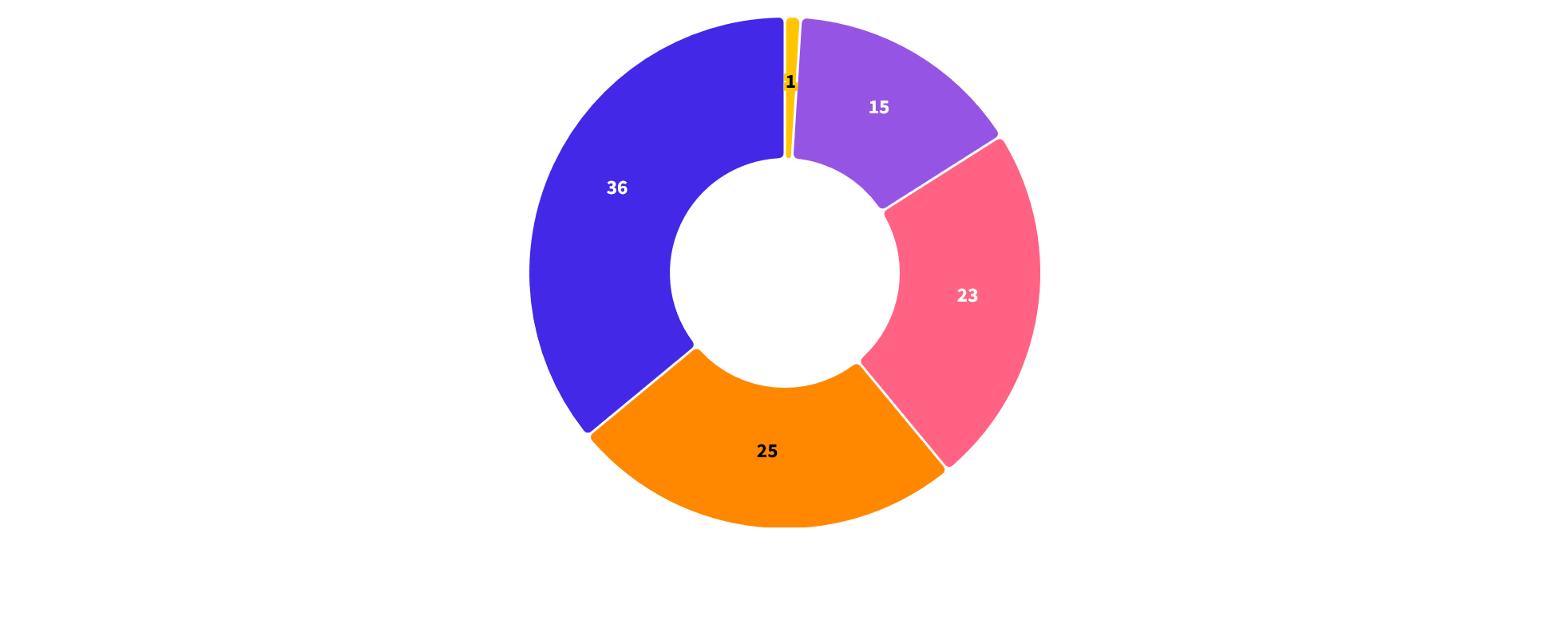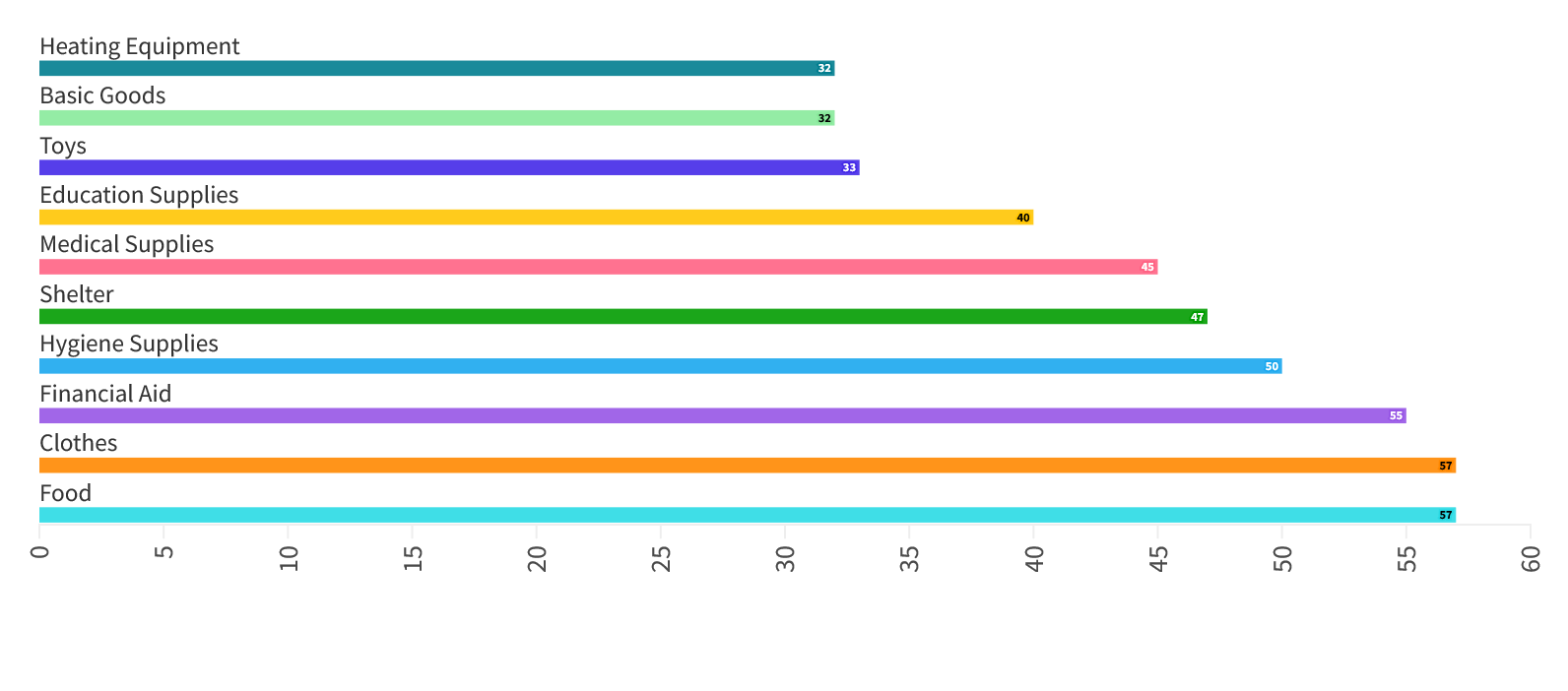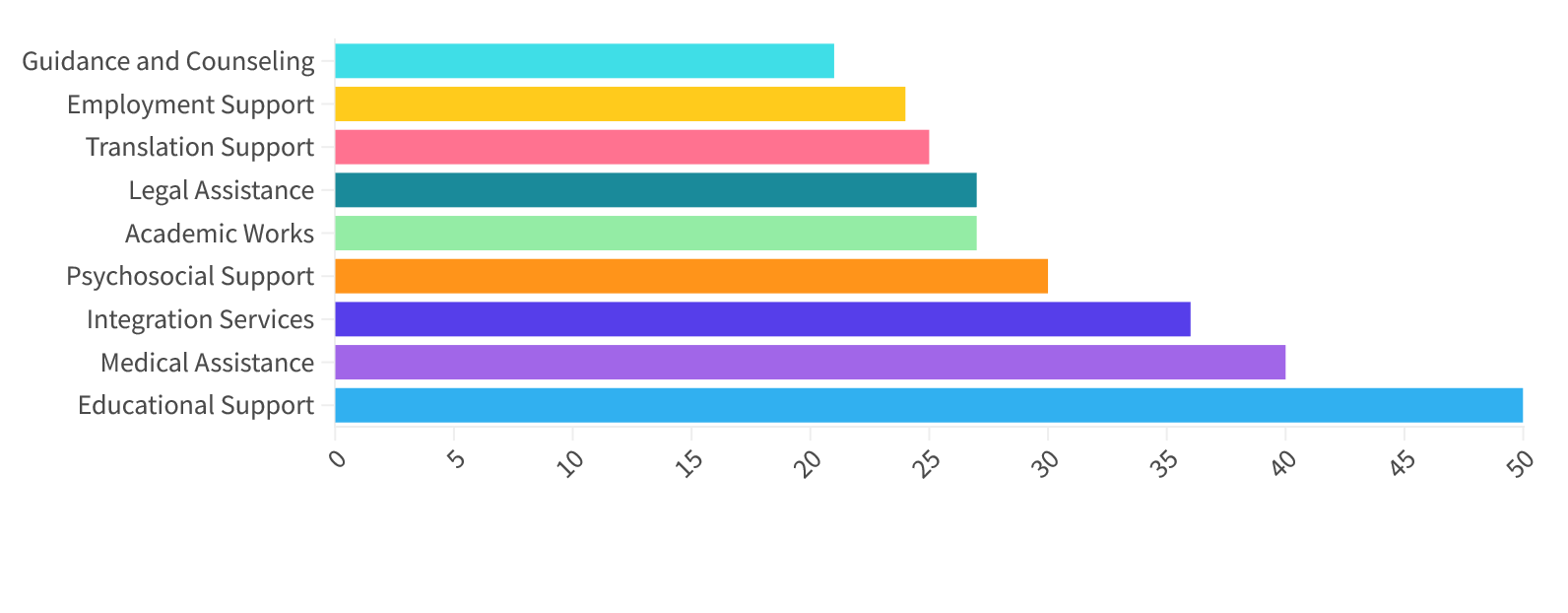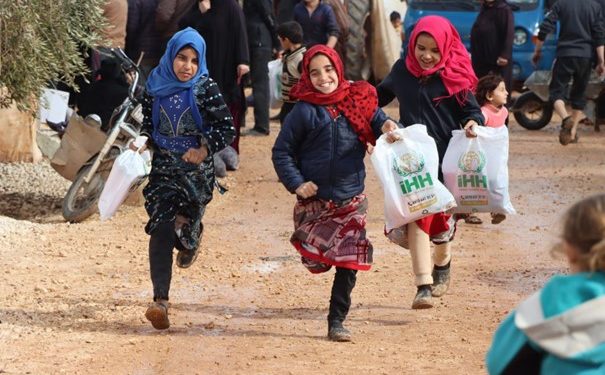The Syrian migration directed towards neighboring countries in response to the civil war that erupted in 2011 has shown a significant quantitative increase, generally in Turkey and specifically in Istanbul. As stated in the literature, Istanbul is considered the most noteworthy sample for evaluating the contribution of nongovernmental organizations to migration management. In this context, this research conducted with a total of 75 nongovernmental organizations[1] working with Syrian migrants in Istanbul reveals the general trends in the activities of these organizations and their networks.
The first wave of Syrian migration witnessed by Türkiye in April 2011 has grown steadily, approaching nearly 4 million according to official records (Presidency of Migration Management, 2024). This migration movement, in its current form, has become the largest human mobility seen since World War II (Sezer, 2000, p. 11). Hence, this migration has become unique in its scale and nature, differentiating itself from previous migrations experienced by Turkey (Erdoğan, 2015, p. 342). During this process, civil society organizations have taken on a significant portion of the workload of AFAD (Disaster and Emergency Management Presidency) under the leadership of the Turkish Red Crescent (Erdoğan, 2018, p. 7).
The literature frequently states that the effectiveness of civil society organizations in the field of social policy has increased due to the impact of globalization. It is particularly emphasized that in the new era, there has been a transition from migration management to migration governance through state-NGO-private sector partnerships (Coşkun, 2022, p. 13; Akatay & Harman, 2017, p. 96). It is also noted that civil society organizations contribute to this partnership with their complementary welfare function (Özdemir, 2007, p. 375). In this context, the potential contributions of nongovernmental organizations to the unique migration movement of Syrians in Türkiye’s history are of significant importance.
Overview of Nongovernmental Organizations
When examining the period during which nongovernmental organizations began to play a role in the Syrian migration, it is noteworthy that 74% of these organizations initiated aid and support programs for migrants within the first five years of the migration (see Figure 1). This indicates that they have been actively involved in the process to a large extent since the early stages of the migration.

Figure 1. Distribution of the Activities by NGOs for Syrians by Years
When examining the main areas of activity in which these civil society organizations are involved in the migration process, it is seen that humanitarian aid stands out the most (Figure 2). This suggests that during the initial phase of migration, the basic needs of the Syrian migrant population attracted more civil society organizations to the field.
During the initial phase of migration, the basic needs of the Syrian migrant population attracted more civil society organizations to the field.

Figure 2. Distribution of the Activities by NGOs for Syrians by Their Fields of Activity
On the other hand, when we look at the humanitarian aid provided by civil society organizations to Syrians, it is evident that there is a high level of interest in basic needs such as food, clothing, shelter, medical and hygiene supplies.

Figure 3. Distribution of the Activities by NGOs for Syrians by Types of Aid
However, when we look at the social services NGOs provide to Syrians, we see that educational support programs, medical assistance, and integration services stand out, while employment and translation support, as well as guidance and counseling, are relatively less prominent.

Figure 4. Distribution of the Activities by NGOs for Syrians by Types of Social Services
Additionally, while this imbalance is attributed to the existing knowledge and resources of civil society organizations (Çorabatır & Hassa, 2013, p. 19), it is also noted that the establishment of new civil society organizations in recent years has led to the development of new areas of social services (Mackreath & Sağnıç, 2017, p. 22).
Coordination among Nongovernmental Organizations
One of the critical points in migration management is the coordination and collaboration among relevant organizations. In terms of both preventing the concentration of services in certain areas and improving the impact of the services, the connections between organizations are crucial. In this context, it is observed that out of the 75 civil society organizations participating in the research, 48 have established 10 or fewer contacts. In contrast, 27 have established more than 10 (Mengü, 2022, p. 18-20), which indicates that the tendency for joint operations among civil society organizations is not widespread. We can suggest that the predominance of organizations that prefer limited contact could pose significant handicaps in organizing fieldwork.
In this regard, when we look at the networks among civil society organizations, we can see that they lack an outward policy for collaboration with other NGOs. Other studies also show that coordination among civil society organizations in Turkey, in general, is weak and fragmented (Bikmen & Meydanoğlu, 2006, p. 118-119), especially in the context of Syrian migration (Erder, 2017: 130). In this context, the two ego networks identified align with the research findings. The Turkish Red Crescent leads civil society organizations (Erdoğan, 2018, p. 7), while the IHH Humanitarian Relief Foundation (IHH) leads among organizations with Islamic principles (Deniz, Ekinci, & Hülür, 2016, p. 77).
Conclusion
The Syrian migration has been a significant test for civil society organizations working with migrants in Turkey, revealing both their limits and their impact. The findings show these organizations’ supportive role and sensitivity in addressing this issue. Notably, they were involved in the support services since the first wave of migration. However, while there was a strong mobilization to meet basic needs initially, the response has been relatively limited in addressing other needs as the migration continues, which is attributed to the predominance of humanitarian aid organizations among civil society organizations in Türkiye. Although efforts in areas other than humanitarian aid have been relatively weaker, there has been a gradual development of activities aimed at addressing new needs arising from migration. It can also be argued that civil society organizations are starting to show interest in law, education, and integration services to help migrants and refugees. However, civil society organizations must improve their existing connections to improve their efficiency and impact. Because as the research shows, nongovernmental organizations working with migrants tend to work more inwardly in terms of coordination and form limited collaborations with specific organizations. Therefore, there is an ongoing need for common platforms where civil society organizations can come together and exchange their experiences.
Kaynakça
Akatay, A. & Harman, S. (2017). Sivil toplum kuruluşları: yönetim, yönetişim ve gönüllülük. Bursa: Ekin Publishing.
Bikmen, F. & Meydanoğlu, Z. (2006). Civil Society in Turkey: At a Turning Point. Civil Society in Turkey: At a Turning Point Report. TÜSEV Publications, 51.
Coşkun, A. (2022). Göç yönetiminden göç yönetişimine: Türkiye için bir model önerisi. Policiy Brief 2022/45. Istanbul: İLKE Foundation for Science Culture and Education. DOI: http://dx.doi.org/10.26414/pn045
Çorabatır, M. & Hassa, F. (2013). Report on the activities of Non-Governmental Organisations for Syrian Refugees in Turkey. Research Centre on Asylum and Migration. Ankara: Anıl Publishing.
Deniz, A. Ç., Ekinci, Y. & Hülür, A. B. (2016). ‘Bizim müstakbel hep harap oldu’: Suriyeli sığınmacıların gündelik hayatı: Antep-Kilis çevresi. Istanbul: Istanbul Bilgi University Press.
Erder, S. (2017). Suriye göçü ve sonrası. In Sosyal hizmetlerde güncel tartışmalar: sosyal hizmet(ler)i yeniden düşünmek konferansları (pp. 125-133). Ankara: Nika Publishing.
Erdoğan, M. M. (2015). Türkiye’ye kitlesel göçlerde son ve dev dalga: Suriyeliler. M. M. Erdoğan & A. Kaya (Ed.), In Türkiye’nin göç tarihi 14. yüzyıldan 21. yüzyıla Türkiye’ye göçler (pp. 317-342). Istanbul: Bilgi University Press.
Erdoğan, M. M. (2018). Türkiye’deki Suriyeliler: toplumsal kabul ve uyum. Istanbul: İstanbul Bilgi University Press.
Presidency of Migration Management (2024). Distribution of Syrians under temporary protection. Retrieved from https://www.goc.gov.tr/gecici-korumamiz-altindaki-suriyeliler
Kaçmazer, M. (2016). Toplumsal kabul ve yaraların sarılması için STK çalışmaları. I Y. Ayyıldız (Ed.), Göçler ve Ortak Geleceğimiz Symposium. Istanbul: Tirekitap Publishing.
Mackreath, H. & Sağnıç, Ş. (2017). Civil society and Syrian refugees in Turkey. Istanbul: Citizenship Assembly.
Mengü, E. (2022). A social network analysis on non-governmental organizations working for Syrians: The case of Istanbul. Middle East Journal of Refugee Studies, 7(2), 5-29.
Özdemir, S. (2007). Küreselleşme sürecinde refah devleti. Istanbul: İTO (Istanbul Chamber of Commerce) Publications.
Sezer, R. (2020). Mülteci: bir aktivistin mülteci kampı tanıklıkları. Istanbul: Karakarga Publishing.
[1] Editor’s Note: Although there are some differences between civil society organizations and nongovernmental organizations in terminology, both terms are translated here interchangeably.
Photograph: IHH (Humanitarian Relief Foundation) delivers aid to those in need in Syrian refugee camps.












































